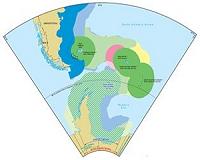 |
Tehran (UPI) May 21, 2010 As Iran braces for a new round of U.N. sanctions over its contentious nuclear program, Pakistan has called on longtime rival India to sign on to a planned $7.6 billion natural gas pipeline from the Islamic Republic. After a two-year lull, New Delhi, a U.S. ally, has signaled it's ready to resume talks on the long-delayed project that Washington bitterly opposes because it will throw Iran an economic lifeline. These could be convened within the next few weeks. The pipeline, as originally envisioned in 1994 would run from Iran's giant offshore South Pars gas field in the Gulf across Pakistan to India, a distance of 1,764 miles. The purpose of the controversial project was to provide Iranian gas to help India and Pakistan, both energy-deficient, to alleviate increase severe power shortages in both countries. Iran and Pakistan signed an agreement in April to build a 560-mile pipeline from South Pars to the Pakistani province of Sindh. Gas sales have also been negotiated between the two countries' state-owned gas concerns. Islamabad has since offered to guarantee the security of the pipeline if it is extended to India through the troubled province of Baluchistan, which is increasingly becoming a major arena in the war in Afghanistan and Pakistan. The Americans have voiced little, if any, public opposition to the Pakistani project. But presumably Washington cannot afford to alienate Islamabad at a time when U.S. forces are increasingly reliant on the Pakistani army moving against al-Qaida and the Taliban. The Iran-Pakistan-India project has been dubbed the "peace pipeline" because it was seen as a symbol of rapprochement between the two Asian neighbors who have been at each other's throats since independence from Britain in 1947. On Tuesday, Shahid Malik, Pakistan's top diplomat in New Delhi, declared that Islamabad would welcome India joining the much-delayed project, a proposal that the Financial Times reports has considerable backing from the region's business community. "We have signed an agreement with Iran, and we would welcome India's participation if it wants to," he told a rare Indo-Pakistani business forum in the Indian capital. Malik's comments were made only days after Indian Foreign Minister S. M. Krishna held talks with Iranian President Mahmoud Ahmadinejad about regional stability and bilateral cooperation. Earlier in May, Indian Prime Minister Manmohan Singh and his Pakistani counterpart, Yousuf Raza Gilani, had discussed bilateral relations. However, despite the signs that India is also prepared to defy the United States on the Iran pipeline project, there are still the problems over security for the pipeline and pricing of the gas. India has boycotted talks on the project since 2008 over concerns about the safe delivery of the Iranian gas and the frequently changing price levels. New Delhi wants Pakistan to stick to the prices agreed between them in 2007 and to take full responsibility for any breaches in security that blocks supplies reaching India. If India rejoins the project, Iran would be able to boast it had taken a major step to break out of the economic straitjacket the United States seeks to impose on the Islamic Republic. But adding India to the equation would also be a massive step toward ending a major source of conflict in the subcontinent that would be of immense geostrategic value for the United States as it battles Islamic forces there. The Americans have been pushing an alternative energy project: A pipeline to South Asia from gas-rich Turkmenistan in Central Asia via Afghanistan that would bypass Iran. However, the severe security problems in Afghanistan mean that project has little prospect of getting off the ground any time soon. The geostrategic consequences of the "peace pipeline" reaching India are many. There has been talk of extending the pipeline from Iran as far as China, which is constantly in need of energy to fuel its ever-expanding economy. China has indicated it's ready to go along with new sanctions against Iran. But its growing energy links with the Islamic Republic, as well as other commerce, point to growing economic ties that the Americans would be powerless to prevent.
Share This Article With Planet Earth
Related Links Powering The World in the 21st Century at Energy-Daily.com
 Argentina takes Falklands claim to EU
Argentina takes Falklands claim to EUMadrid (UPI) May 21, 2010 Argentina stressed its sovereignty claim over the Falklands Islands archipelago, increasingly at the center of an intense oil quest, amid sharp rebuffs from Britain's newly installed coalition government and calls for restraint from European partners. President Cristina Fernandez de Kirchner launched the claim at the Caribbean-Latin American summit with the European Union despite advice ... read more |
|
| The content herein, unless otherwise known to be public domain, are Copyright 1995-2010 - SpaceDaily. AFP and UPI Wire Stories are copyright Agence France-Presse and United Press International. ESA Portal Reports are copyright European Space Agency. All NASA sourced material is public domain. Additional copyrights may apply in whole or part to other bona fide parties. Advertising does not imply endorsement,agreement or approval of any opinions, statements or information provided by SpaceDaily on any Web page published or hosted by SpaceDaily. Privacy Statement |